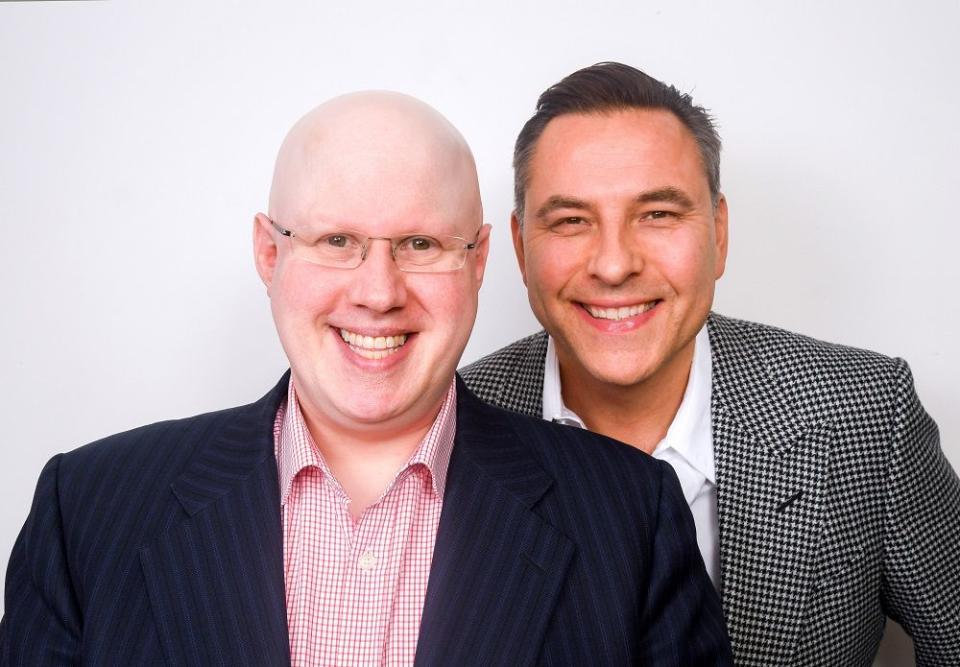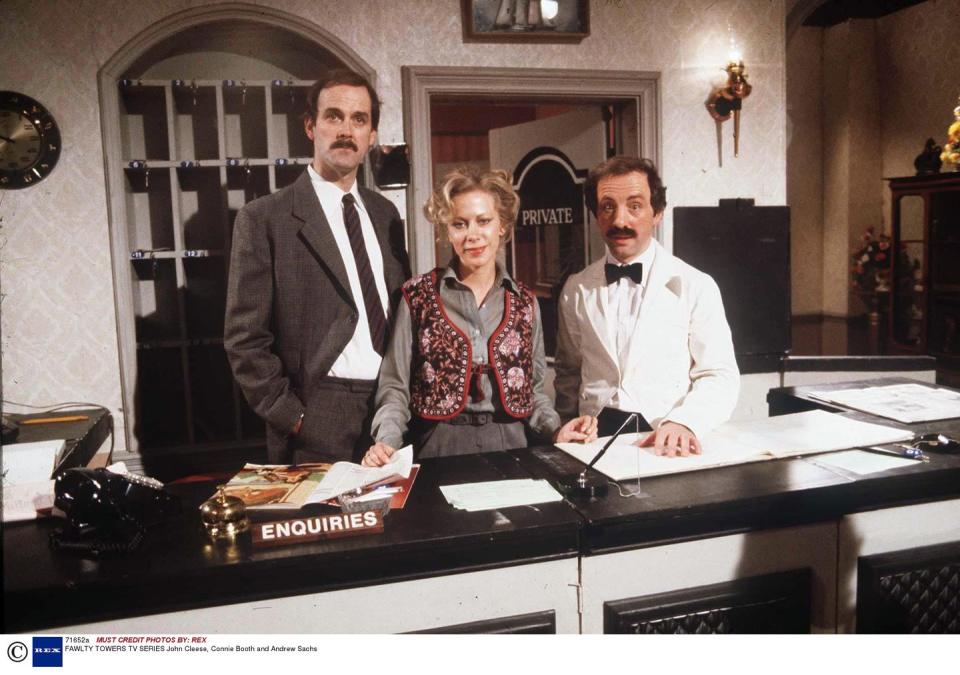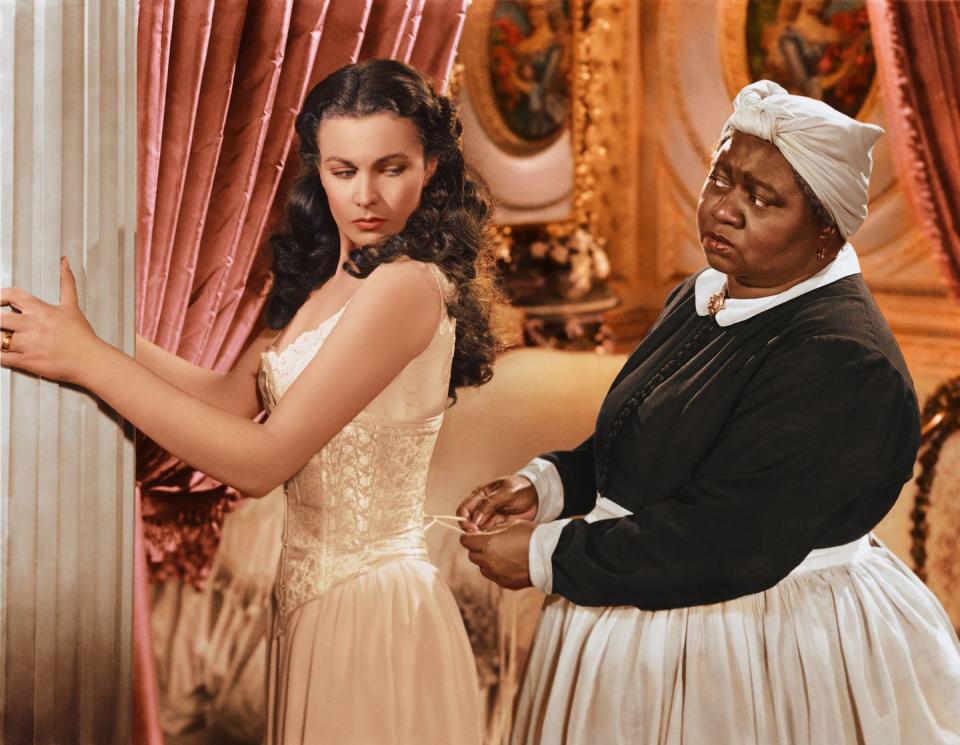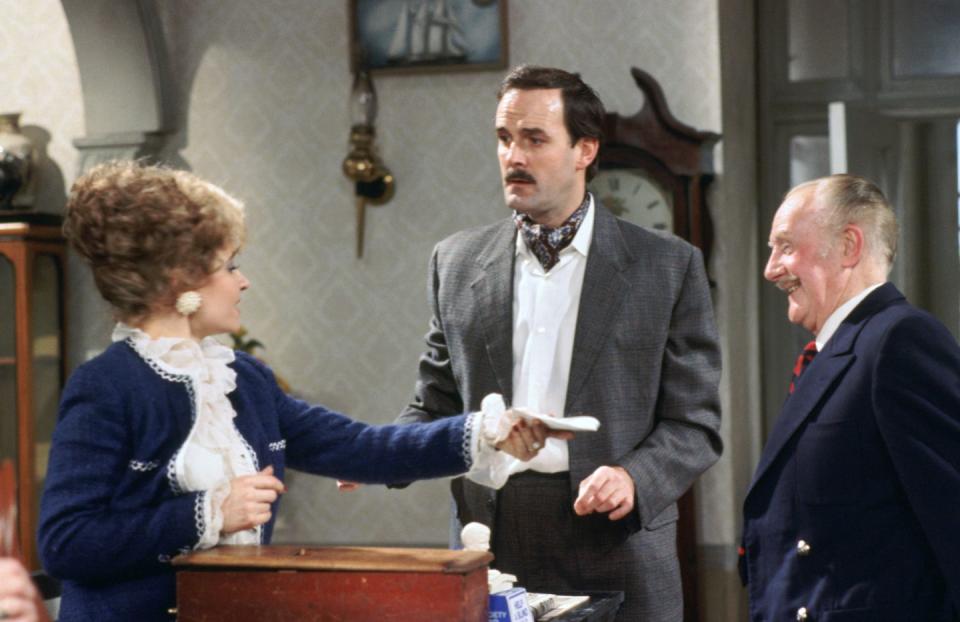Little Britain should have been removed a long time ago

Blackface has been back in the headlines recently due to the new momentum of the Black Lives Matter movement, but to fully understand the conversation we need to consider its history.
Like racism itself, blackface stretches back centuries and its implications are deeply rooted in oppression. The use of blackface was particularly prominent in the 1800s as a reaction to anti-slavery campaigns, and was a means of mocking Black people. It played into attitudes and ideologies that underpinned transatlantic slavery and segregation.
"The representation of Black people as caricatures was part of a process of undermining their full humanity, which in turn served to justify unequal and degrading treatment," explained Dr Katie Donington, a senior lecturer in history at the London South Bank University, to inews.
As such, blackface has never been morally justified, even if it was deemed acceptable by a dominant white culture. But what has changed is that those who were on the receiving end (and their growing number of allies) are now being heard loudly enough to no longer be ignored.

Unfortunately, perhaps due to a lack of Black history being taught, perhaps to wilful ignorance, blackface has seeped into more contemporary entertainment – but it seems the tide is turning at last.
When it was announced last week that Little Britain would be removed from streaming platforms such as Netflix and BBC iPlayer, it felt like a "finally!" moment for many. Sadly though, there was also the predictable onslaught of criticism from those pushing against these waves of progress.
The show, birthed by Matt Lucas and David Walliams in 2003, carved out its legacy by introducing a number of different fictional characters. In their self-confessed "greediness" to portray as many people as possible (via the RHLSTP podcast in 2019), the duo also ventured into representing a disabled person, transgender characters and Black people. Each creator has since expressed regret at these decisions.
While many attempt to defend it as mocking the less-tolerant mindset of some in the UK (hence the name "Little" Britain), the problem stands that these jokes were also at the expense of real-life groups who have a longstanding history of being marginalised and attacked (whether verbally or, as recent news once again highlights, physically).
In a statement, the BBC confirmed that Little Britain was being removed from its streaming platform. It labelled the show part of its "historical programming" that is reviewed regularly, and deemed that "times have changed since Little Britain first aired…"
The trouble is, Little Britain is not some dusty long-forgotten series from a bygone era. Rewind only a few months, and Matt Lucas and David Walliams' format was given the reboot treatment as part of the BBC's Big Night In. While the pair wisely avoided blackface on that occasion, the nature of the show still seeped through in the form of a racist bat-eating joke.
At a time when conspiracy theories and misinformation were being spread about coronavirus, and there were increased reports of racist incidents against East Asian communities, it could be argued that Little Britain was applying its own brand of comedy to a different target.
The removal of Little Britain was followed by a number of other marked shifts in the world of entertainment. Netflix has pulled The League of Gentlemen and The Mighty Boosh due to their uses of blackface for some characters, and UKTV confirmed that it had temporarily removed an episode of Fawlty Towers from its platform while it considered options to edit or include a warning alongside its content.
The episode in question – which aired in 1975 – included regular character The Major using a number of derogatory terms to describe the West Indies cricket team.
Actor John Cleese, who played Basil Fawlty in the British comedy, criticised the removal in an interview with Australian newspaper The Age (via Deadline), arguing that people were laughing at the character's offensive comments, rather than with him. He implied that anyone that hadn’t understood this was "too stupid", rather than conceding that – depending on your perspective – you wouldn’t find it funny, regardless.

Cleese also took aim at the BBC (it's important to point out here that UKTV operates independently of BBC Studios), arguing: "A lot of the people in charge now at the BBC just want to hang onto their jobs. If a few people get excited they pacify them rather than standing their ground as they would have done 30 or 40 years ago."
This is a particularly damaging stance to take, as it rejects the idea of change and advocates the continued silencing of anyone that speaks out against the status quo. Society, and its institutions, have been built on a foundation of white supremacy, and Cleese, as a white man, cannot speak on behalf of those that do not benefit from that system.
His words also fit the ongoing narrative of 'political correctness gone mad' – a claim that detracts from the specific issues at hand and again, only further benefits those already benefiting from the system.
By contrast, Leigh Francis (aka Keith Lemon), who made a name for himself as the creator of Bo' Selecta! in the early 2000s, issued an apology for playing Black celebrities on the sketch show.

The comedian, also known as his on-screen persona Keith Lemon, admitted that he "didn't realise how offensive it was back then" but that he had been doing more "talking and learning" in light of recent events.
While this is the bare minimum that we should be asking of people, it is a positive that many of those that previously thought this was okay are now learning why it wasn't. An important part of the Black Lives Matter movement is to encourage further education and understanding.
Gone with the Wind became another topic of discussion recently, when HBO revealed that the film would be temporarily removed from HBO Max due to the racist depictions it presented.
The 1939 movie is set on a plantation during the American Civil War, and has been widely criticised for its inaccurate presentation of slavery and Black people.

"These racist depictions were wrong then and are wrong today, and we felt that to keep this title up without an explanation and a denouncement of those depictions would be irresponsible," a statement read. It was later clarified that the film would return but with the added "discussion of its historical context and a denouncement of those very depictions".
This move came after John Ridley, screenwriter of 12 Years a Slave, published an open letter in the LA Times addressing the movie's inclusion on the new streaming platform. He pointed out that Gone with the Wind was not only inaccurate, but it "romanticizes" and "glorifies" that period in history while also using screen time to "perpetuate some of the most painful stereotypes of people of color".
Ridley was not arguing for censorship or even the film's removal, but he was instead advocating for it to be presented alongside other works that offer "a more broad-based and complete picture of what slavery and the Confederacy truly were" and that other perspectives that did not simply reinforce "the views of the prevailing culture" be given a platform too.
When Gone with the Wind does return to HBO, it will be alongside a disclaimer written by a Black film scholar named Jacqueline Stewart. "HBO Max will bring Gone with The Wind back to its line-up, and when it appears, I will provide an introduction placing the film in its multiple historical contexts," she wrote in a piece for CNN.
"For me, this is an opportunity to think about what classic films can teach us. Right now, people are turning to movies for racial re-education, and the top-selling books on Amazon are about anti-racism and racial inequality. If people are really doing their homework, we may be poised to have our most informed, honest and productive national conversations yet about Black lives on screen and off."

Some seem to be arguing that shows like Little Britain and Fawlty Towers should not be removed, because they feel some part of their own history or identity is being taken away. Firstly, it is worth noting that these shows are not banned – DVD box sets and other online platforms still exist for anybody holding a deep desire to re-watch them.
But there is also an even greater irony here that should not be lost. For many Black people, identity and history is something that has had to be fought for, with the narrative long being dictated by white people.
Giving up some TV shows, or accepting that they might be perpetuating a problem that makes life harder for some, is hardly a sacrifice by comparison, particularly if it helps to tip the scales to a more balanced position.
For more information on how you can support Black Lives Matter, please visit its official website or donate here. Readers can also donate to the UK anti-discrimination group Stand Up To Racism, and the Unite Families & Friends Campaign, which supports those affected by deaths in police, prison and psychiatric custody.
Digital Spy now has a newsletter – sign up to get it sent straight to your inbox.
Looking for more TV recommendations and discussion? Head over to our Facebook Group to see new picks every day, and chat with other readers about what they're watching right now.
You Might Also Like


